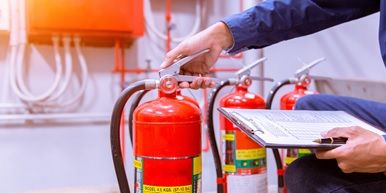With temperatures rising across the country, the Union Health Ministry and the National Disaster Management Authority (NDMA) have issued a joint advisory to all states and Union Territories (UTs) highlighting the urgent need for proactive measures to prevent hospital fires during the summer months.
In an advisory released on Saturday, 23 March, the Union Health Ministry emphasised the critical importance of ensuring fire safety in hospitals to mitigate the risk of devastating incidents. The advisory underscored the collaboration between State Health Departments and State Disaster Management Authorities in implementing necessary precautions.
The advisory outlines several key measures that hospitals must undertake immediately:
● Thorough Inspections: Conduct comprehensive fire safety audits to assess compliance with fire safety standards.
● Electrical Load Audits: Address issues related to electrical load capacity and rectify any discrepancies promptly.
● Fire NOC Compliance: Obtain valid fire No-Objection Certificates (NOCs) from respective state fire departments.
The advisory also provided detailed instructions for hospitals to ensure fire safety compliance. These included regular maintenance and testing of firefighting equipment, conducting electrical audits, and implementing strict protocols for oxygen safety.
Hospitals are directed to regularly inspect firefighting equipment such as extinguishers, hydrants, and alarms. This includes ensuring the accessibility and adequacy of water pressure in hydrants and verifying the operational status of fire alarms throughout the facility, the advisory stated.
Regarding regular electrical load audits, the Ministry stated that biannual electrical audits are mandated to evaluate power consumption, particularly in high-demand areas like ICUs. “Upgrades or modifications should be assessed by a certified electrician to ensure they meet safety standards without overloading the system as per the National Electrical Code of India-2023,” the advisory added.
As per the advisory, the Ministry advised the use of power management systems to monitor electrical loads and prevent overloading. It suggested that hospitals ensure that multiple high-power devices are not connected to a single circuit.
In areas with oxygen tanks or piped oxygen, the Ministry advised implementation of strict no-smoking policies and controls on heat sources. It added, “Signage should clearly mark these areas, and staff should be trained on the risks associated with high- oxygen environments.” Additionally, fire smoke detectors and fire alarms must be installed in all hospital areas, particularly in patient rooms, hallways, and common areas.
The advisory also recommended that hospitals audit materials used in construction and furnishings in order to be able to identify and replace combustible materials with non-combustible or fire-resistant alternatives, especially in-patient care areas. It further advised that electrical ducts be sealed with materials like intumescent firestop sealants that prevent the spread of fire and smoke through openings.








